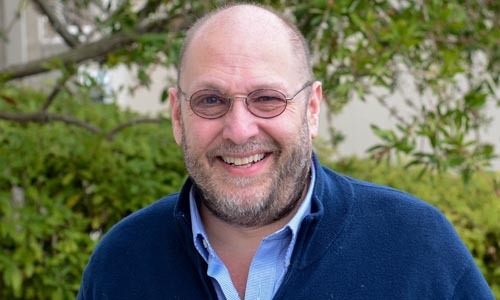Episodes

Wednesday May 19, 2021
Using a Digital Cognitive Behavior Therapy to Treat Diabetes and Heart Disease
Wednesday May 19, 2021
Wednesday May 19, 2021
Cardiometabolic conditions, such as type 2 diabetes and heart disease, have long been treated with pharmacologic interventions. Better Therapeutics believes cognitive behavioral therapy delivered through its prescription digital therapeutics platform, will provide better outcomes at a lower cost. We spoke to David Perry, co-founder and executive chairman of Better Therapeutics, about the company’s prescription digital therapeutics platform, the case for personalized cognitive behavior therapy delivered this way, and what it will take to get doctor to prescribe it and payers to reimburse for it.

Wednesday May 12, 2021
Disrupting Pain Signals with Precision
Wednesday May 12, 2021
Wednesday May 12, 2021
The side effects of opioids and the potential for addiction underlies the need for new approaches to the treatment of pain. SiteOne therapeutics is developing a pipeline of therapies that target sodium ion channels to block the electric signals sent from the site of pain. Unlike other similar drugs, SiteOne is able to target these sodium channels with great specificity to avoid the types of side effect that have limited the value of drugs that target these proteins. We spoke to John Mulcahy, president and CEO of SiteOne, about the company’s approach to pain, its pipeline, and how its therapies are able to hit their targets with precision. Special offer to listeners of The Bio Report: With the Digital Library from DeepDyve, you can search 100 million scientific papers with full access to 20 million articles, annotate them, and share with colleagues. It’s one-stop, affordable research. Try one month of DeepDyve’s enterprise service for free. Go to deepdyve.com/podcast and use the code BIOREPORT.

Thursday May 06, 2021
A Diagnostics Company Moves to Developing Precision Cancer Therapies
Thursday May 06, 2021
Thursday May 06, 2021
Earlier this year NovelluxDx rebranded itself as Fore Biotherapeutics signaling a shift from being a diagnostics company to its new life as a precision cancer therapeutics drug developer. Building on its functional genomics platform, the company is in-licensing small molecule drug candidates it sees having potential to treat hyper-targeted patient populations. We spoke to Usama Malik, CEO of Fore Biotherapeutics, about the move from diagnostics to drug development, the approach Fore is taking, and why it thinks it can see value in molecules that others may miss.

Thursday Apr 29, 2021
Characterizing the Immunome at Scale
Thursday Apr 29, 2021
Thursday Apr 29, 2021
When variants of the COVID-19 virus emerged in late 2020, it raised concerns about whether people already infected with the original virus, or vaccinated against it, would be able to generate a protective immune response that would confer protection against these new strains. Researchers at the National Institutes of Health’s National Institute of Allergy and Infectious Diseases and Johns Hopkins University recently reported encouraging findings from a study that took a detailed look at the antibodies in the blood from COVID-19 patients. To do this, they used a deep immunomics technology platform developed by ImmunoScape. We spoke to Brian Abel, senior director of business development at ImmunoScape and lead of the company’s COVID-19 Vaccine Task Force, about the COVID-19 study, the company’s technology, and how it is being used to develop the next generation of immunotherapies.

Thursday Apr 22, 2021
Delivering Oxygen to Tissue in Need
Thursday Apr 22, 2021
Thursday Apr 22, 2021
Hypoxia, a potentially fatal shortage of oxygen in tissues, is a complicating factor in a variety of serious illnesses including cancer, cardiovascular disease, and respiratory conditions. Diffusion Pharmaceuticals lead experimental candidate, TSC, enhances the ability of the body to deliver oxygen to where it is needed most. We spoke to Bob Cobuzzi, CEO of Diffusion Pharmaceuticals, about hypoxia, the company’s lead therapeutic candidate to address it in a broad range of conditions, and its clinical development strategy for the drug.

Thursday Apr 15, 2021
Using Gene Therapy to Create a Drug Biofactory within a Patient
Thursday Apr 15, 2021
Thursday Apr 15, 2021
Wet age-related macular degeneration is a progressive disease and a leading cause of vision loss in patients over the age of 60. Vision loss is caused by the leakage of blood and other fluid from abnormal blood vessel growth underneath and into the retina. Though the condition is treated by a class of therapies known as VEGF inhibitors, these biologics need to be repeatedly injected into patients’ eyes and for a variety of reasons patients’ real-world experience with the drugs don’t match clinical trial outcomes. Adverum Biotechnologies is developing a gene therapy to treat the condition. Rather than addressing an underlying genetic cause though, the gene therapy carries a sequence that causes the eye to produce aflibercept, the VEGF inhibitor marketed as Eyelea and Zaltrap. We spoke to Laurent Fischer, CEO of Adverum, about the company’s gene therapy, how it works, and why the one-and-done approach could translate into better results for patients.

Thursday Apr 08, 2021
Finding New Uses for TNF Inhibitors
Thursday Apr 08, 2021
Thursday Apr 08, 2021
TNF inhibitors, such as Humira and Remicade, have been a great biotech success story. These multi-billion franchises treat a range of autoimmune conditions including rheumatoid arthritis, psoriasis, and Crohn’s disease. Jim Woody, who led Centocor’s development team for Remicade, the first of the TNF-inhibitors, is today in pursuit of new uses for these therapies. Now CEO of 180 Life Sciences, Woody and his team are pushing TNF inhibitors into new indications for inflammatory and fibrotic conditions. We spoke to Woody about the role of TNF in the inflammatory process, the indications his company is pursuing, and why these well-established drugs have gone untapped for these purposes. The Bio Report welcomes DeepDyve as a sponsor. Search 100 million scientific papers with full access to 20 million articles. It’s one-stop, affordable research. Try the enterprise version of the service free for one month. Go to deepdyve.com/podcast and use the code BIOREPORT

Thursday Apr 01, 2021
Using AI to Map the Undiscovered World of Bioactive Compounds in Plants
Thursday Apr 01, 2021
Thursday Apr 01, 2021
The plant world has been a ready source of bioactive compounds that can improve human health. There are more than 10 million natural compounds in the plant world, but less than 0.1 percent of these compounds have been explored. Brightseed’s Forager is an artificial intelligence discovery platform that is being used to map millions of bioactive natural compounds to identify ones with potential to address human health needs. We spoke to Jim Flatt, co-founder and CEO of Brightseed, about the company’s discovery platform, its business model, and why it’s pushing beyond nutrition and supplement companies to forge partnerships with drug developers.

Daniel Levine
Daniel Levine is an award-winning business journalist who has reported on the life sciences, economic development, and business policy issues throughout his career. He is founder and principal of Levine Media Group, host of The Bio Report and RARECast podcasts, a senior fellow at the Center for Medicine in the Public Interest, and author of Global Genes’ annual NEXT report on emerging trends in the world of rare disease. From 2011 to 2014, he served as the lead editor and writer of Burrill & Company’s acclaimed annual book on the biotech industry. His work has appeared in numerous national publications including The New York Times, The Industry Standard, and TheStreet.com.

